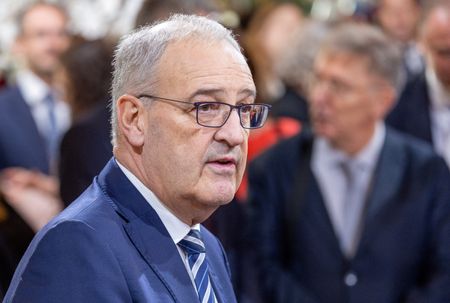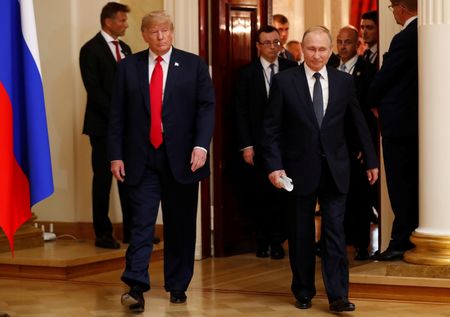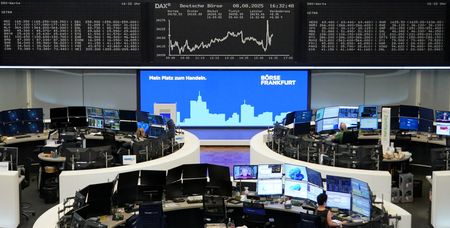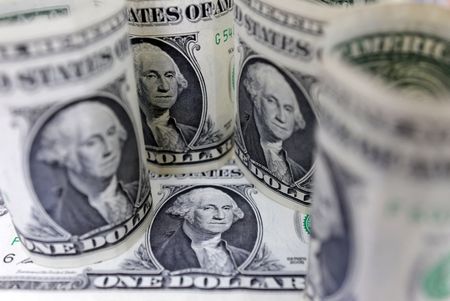By John Revill
ZURICH (Reuters) -The Swiss government is due to meet this week with pharmaceuticals firms that U.S. President Donald Trump has asked to lower their prices, as Switzerland seeks to negotiate down a new 39% tariff on its exports, two sources have told Reuters.
Economy Minister Guy Parmelin and Health Minister Elizabeth Baume-Schneider will meet with executives from Roche and Novartis, according to two people familiar with the matter, who said other companies may also take part.
Roche and Novartis did not respond to a request for comment. A spokesperson for the health minister confirmed the meeting but declined to give any details or confirm the participants.
Although pharmaceuticals are not included in the 39% U.S. tariffs which came into effect on Swiss imports last week, the industry is concerned by the outcome of the U.S. Section 232 national security investigation into the sector. This could result in tariffs on drug imports eventually reaching 250%.
The results of the review are expected in the next few weeks.
The talks could also be about encouraging pharmaceuticals companies to invest more in the United States, said a person familiar with the matter, to reduce Switzerland’s trade surplus with the U.S. and help reduce the 39% tariff, which covers exports including Swiss watches and chocolate.
Trump has been pushing pharmaceuticals companies to reduce the price of their drugs in the United States, which could make drugmakers increase their prices in Europe to compensate.
Such a move could be a concern for the Swiss health ministry, which agrees prices with pharmaceuticals companies, by making drugs in Switzerland more expensive, although drugs prices in Switzerland are already slightly higher compared with other European countries.
The Swiss government earlier said that Helene Budliger Artieda, its chief negotiator and head of the State Secretariat of Economic Affairs (SECO), had returned from Washington, but tariff discussions with the U.S. were continuing.
Pharmaceuticals are by far the most important Swiss export sector to the United States, with shipments worth 32.75 billion Swiss Francs, making up half of Swiss exports there last year.
If the 39% tariff was extended to cover pharmaceuticals, Swiss economic output could fall by more than 1%, according to one estimate.
Washington’s concerns have been driven by its 38.7 billion franc trade deficit with Switzerland, with pharma by far the biggest contributor.
Swiss companies, including pharma, have already pledged to increase their spending in the United States to avoid tariffs.
In April Novartis said it plans to spend $23 billion to build and expand 10 facilities in the U.S. while Roche, unveiled plans to invest $50 billion over the next five years, creating more than 12,000 new jobs.
(Reporting by John Revill; editing by Philippa Fletcher)













